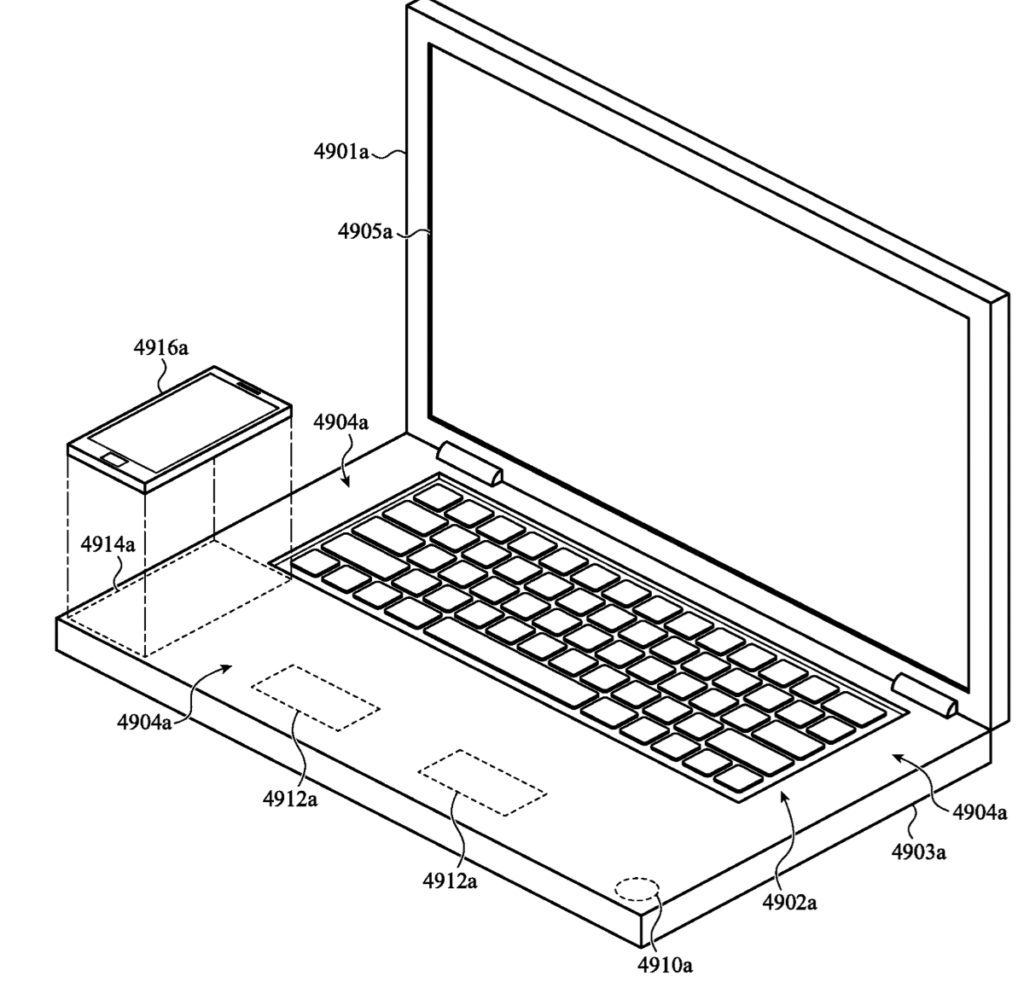Apple has been granted a patent (number 11,099,649) for a “device having an integrated interface system.” It’s for a Mac laptop with dual displays, an integrated wireless charger, increased resistance to spills, and better durability.
About the patent
In the patent, Apple notes that in some traditional electronic devices, the inclusion of input devices (keyboards, trackpads, mice, or touchscreens) may require the formation of a hole, opening, or seam through which liquid or other foreign matter may enter the device enclosure. Additionally, the enclosure of some traditional electronic devices may be formed from materials that are easily scratched or that provide an inferior tactile feel or visual appearance.
One of the goals of Apple’s patent is to offer a laptop with a “transparent dielectric material may form a continuous or seamless input surface that may improve the look and feel of the device without having the drawbacks of some traditional device constructions.”
The patent also involves a virtual keyboard. a second display. It may be configured to display an image of a keyboard in a keyboard region of the top case. In other words, a virtual keyboard with haptic feedback.
The image of the keyboard may include an image of a key, and the second sensing system may be configured to register a key input in response to detecting an input applied to the key and having a force exceeding a force threshold. This would provide a virtual keyboard with the “feel” of a physical keyboard.
Even more interesting is the plan for a Mac laptop to have a wireless charging section. This would be accomplished via optical sensors. Such sensors — scattered through the laptop — could also bring Face ID to the Mac.
Summary of the patent
Here’s Apple’s abstract of the patent: “A device includes a display portion that includes a display housing and a display within the display housing. The device also includes a base portion flexibly coupled to the display portion and comprising a glass member defining a keyboard region configured to receive user input, a first haptic actuator configured to produce a first haptic output at a first area of the keyboard region, and a second haptic actuator configured to produce a second haptic output at a second area of the keyboard region that is different from the first area.”
Article provided with permission from AppleWorld.Today

